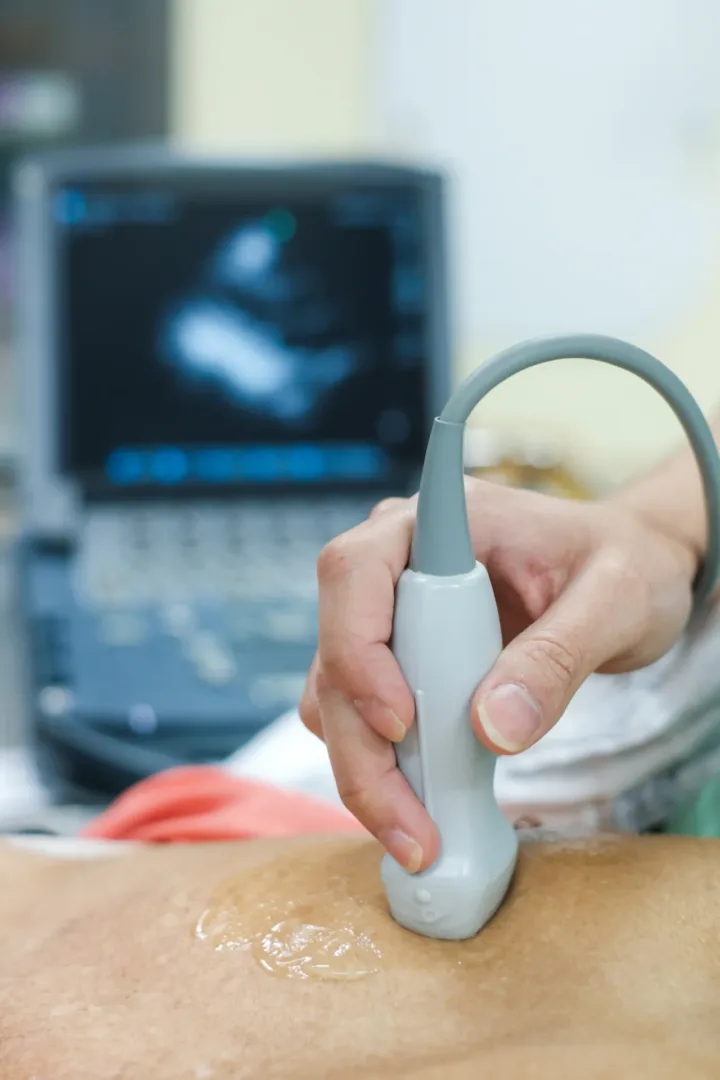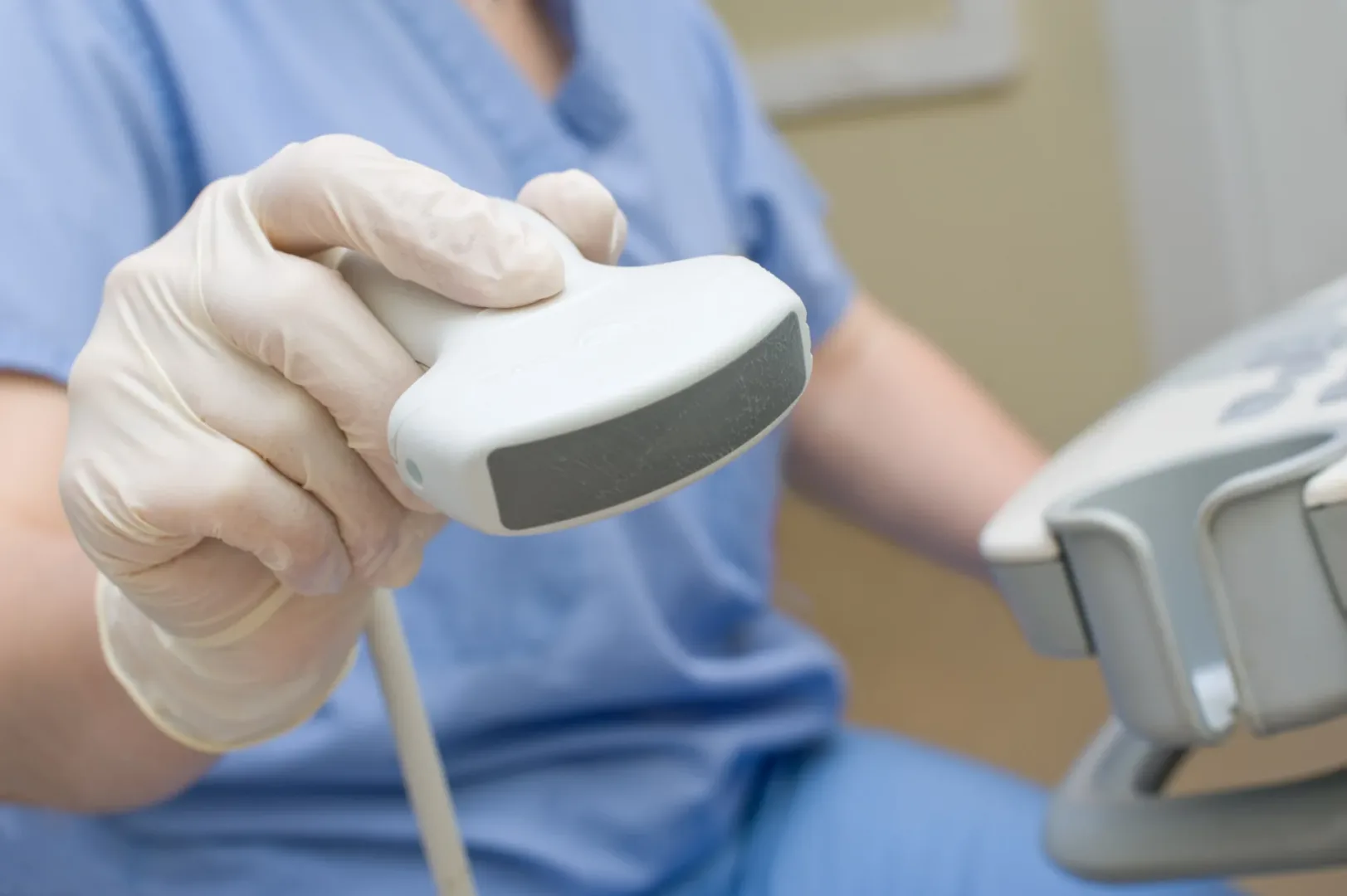Ultrasound

Welcome to Millennium Physicians, your trusted source for comprehensive and reliable ultrasound services in Houston, Texas. Our team of dedicated healthcare professionals utilizes state-of-the-art equipment and cutting-edge technology to deliver accurate and timely results for our patients. Whether you need a routine screening or a more specialized diagnostic exam, our experienced staff is here to provide you with compassionate care and personalized attention every step of the way. At Millennium Physicians, your health and well-being are our top priority.
What is an Ultrasound?
Ultrasound is a non-invasive medical imaging technique that uses high-frequency sound waves to produce images of the internal structures and organs of the body. During an ultrasound exam, a trained medical professional called a sonographer or ultrasound technologist will apply a small handheld device called a transducer to the skin, which emits sound waves that bounce off internal organs and tissues, creating detailed images that can be viewed in real-time on a monitor. Ultrasound is commonly used to diagnose a wide range of medical conditions, such as pregnancy, cardiovascular disease, abdominal and pelvic disorders, and musculoskeletal injuries, among others. It is a safe, painless, and radiation-free imaging modality that offers valuable diagnostic information to healthcare providers.
What are the side effects of ultrasounds
Ultrasound is generally considered a safe and non-invasive imaging technique, and there are no known long-term side effects associated with its use. In rare cases, some patients may experience mild discomfort or pain during the procedure, particularly if the transducer is applied to an area that is already sensitive or painful. Additionally, there have been a few reports of skin irritation or burns caused by prolonged exposure to the transducer. However, these complications are extremely rare and typically occur only when the ultrasound is performed by an untrained or inexperienced operator. Overall, ultrasound is a very safe and well-tolerated diagnostic tool, and any potential risks are greatly outweighed by its many benefits.
Heart Echocardiogram
A heart ultrasound, also known as an echocardiogram, is a non-invasive imaging test that uses high-frequency sound waves to create detailed images of the heart and its surrounding blood vessels. During the exam, a trained technician applies a small transducer to the chest, which emits sound waves that bounce off the heart and create real-time images of its structures, including the chambers, valves, and blood flow patterns.
There are several types of echocardiograms, including transthoracic echocardiogram (TTE), transesophageal echocardiogram (TEE), and stress echocardiogram. TTE is the most common type, and it involves placing the transducer on the chest to obtain images of the heart from different angles. TEE is a more invasive type of echocardiogram that involves passing a thin, flexible tube with a transducer on the end down the throat and into the esophagus to obtain clearer images of the heart. Stress echocardiogram is performed while the patient exercises on a treadmill or stationary bike to evaluate how the heart responds to physical exertion.
Heart ultrasounds are used to diagnose a wide range of heart conditions, including structural abnormalities, valve disorders, heart failure, and coronary artery disease. They are also used to monitor the effectiveness of treatments and to guide certain medical procedures, such as heart valve replacements or repairs. Overall, echocardiograms are safe, painless, and provide valuable diagnostic information to healthcare providers.

Ultrasound Use Cases Offered at Millennium Physicians
Breast Scans
Breast ultrasounds are commonly used to help diagnose breast lumps, evaluate breast abnormalities detected on a mammogram, and to guide breast biopsies.
Pregnancy
These images can provide information on the fetal age, size, position, and health, and can help detect any potential complications such as ectopic pregnancy or multiple gestation. Pregnancy ultrasounds are a routine part of prenatal care and can also provide parents with the opportunity to see and bond with their unborn baby.
Pelvic Issues
Pelvic ultrasounds can be performed transabdominally, where a small handheld device called a transducer is placed on the abdomen, or transvaginally, where the transducer is inserted into the vagina. Pelvic ultrasounds are commonly used to help diagnose and monitor conditions such as ovarian cysts, fibroids, endometriosis, and urinary tract abnormalities. They can also be used during pregnancy to monitor fetal growth and development.
Stomach Problems
Abdominal ultrasounds are commonly used to help diagnose and monitor conditions such as liver disease, gallstones, kidney stones, abdominal aortic aneurysms, and pancreatitis. They can also be used during pregnancy to monitor fetal growth and development.
Carotid Arteries
The carotid arteries are important for maintaining proper blood flow and oxygenation to the brain, and any blockages or narrowing in these arteries can increase the risk of stroke or transient ischemic attack (TIA). Carotid ultrasound is a non-invasive, painless procedure that can be performed in a medical office or clinic, and is typically interpreted by a vascular specialist or radiologist.
Heart Complications
Heart ultrasounds, also known as echocardiography, can help evaluate the structure and function of the heart, including the size and shape of the chambers, the thickness of the heart walls, the movement of the heart valves, and the blood flow through the heart and its vessels. Heart ultrasound can also be used to diagnose and monitor conditions such as heart disease, heart failure, heart valve disorders, and congenital heart defects.
Ultrasound Frequently Asked Questions
The preparation for an ultrasound exam depends on the specific type of exam being performed. In general, you may be asked to fast for a few hours prior to the exam, avoid drinking fluids or using the restroom, and wear comfortable, loose-fitting clothing. Our healthcare staff will give you specific instructions based on your individual needs.
3 Convenient Houston Locations

13700 Medical Complex Dr.
Tomball, TX 77375
P (281) 315-8160
F (281) 315-8161
Services Offered
- Diagnostic CT
- Ultrasound

18488 I-45 South
Shenandoah, TX 77384
P (281) 943-2440
F (281) 943-2404
Services Offered
- Ultrasound
- Echo

22730 Professional Dr.
Kingwood, TX 77339
P (281) 312-8545
F (281) 312-8568
Services Offered
- Diagnostic CT
- Ultrasound
- Biopsy
- Echo
